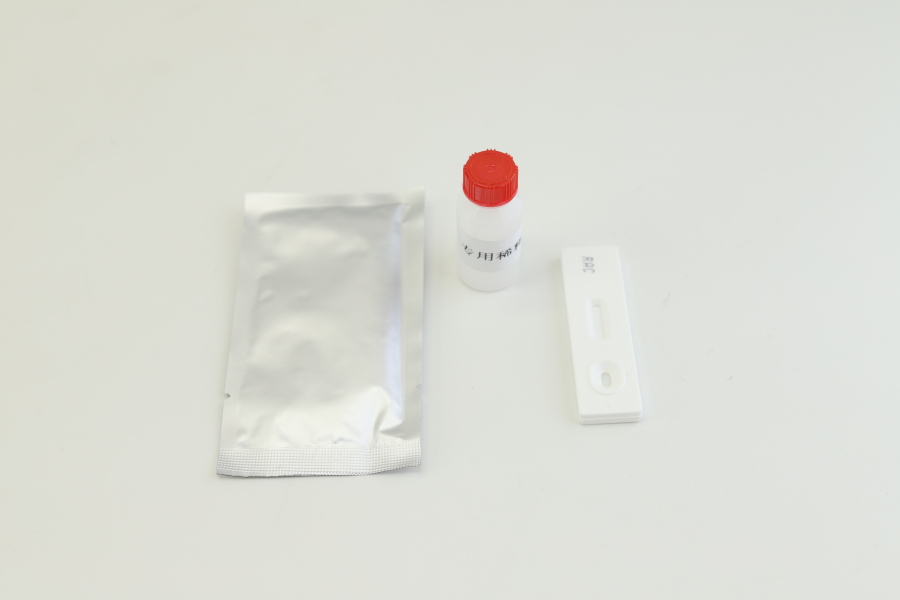The Amidamiprid Colloidal Gold Rapid Detection Card is a rapid detection product for pesticide residues developed based on colloidal gold immunochromatography technology. It is mainly used for quantitative or semi-quantitative detection of Amidamiprid in food. As an important tool in the field of food safety testing, it can complete the detection process in a short time through specific immune reaction principles, providing efficient quality control support for food production, supervision and scientific research.
From the technical principle, the detection card uses the Amidamiprid antibody labeled with colloidal gold as the core, combined with the Amidamiprid antigen pre-coated on the nitrocellulose membrane. When the sample (such as the extract of food substrates such as vegetables, fruits, grains, etc.) drops into the detection card and the sample hole, it will be chromatographed along the test strip under capillary action. If the sample contains acetamiprid, it will competitively bind the antigen with the colloidal gold-labeled antibody, resulting in a change in the color of the test strip detection line (T-line). By comparing it with the quality control line (C-line), it can be judged whether there are residues and approximate content.
In practical applications, the acetamiprid colloidal gold rapid detection card has significant advantages: first, the detection speed is fast, usually 10-15 minutes to produce results, much faster than traditional laboratory detection methods; second, it is easy to operate, without professional instruments and complex pretreatment, and can be used by ordinary personnel after simple training; third, it has high sensitivity and can detect residual concentrations as low as 0.1-1 ng/mL, which meets the requirements of food safety standards; fourth, it has low cost and is suitable for large-scale screening.
At present, the test card is widely used in the acceptance of raw materials of food production enterprises, the rapid sampling inspection of market supervision departments, the on-site inspection of the catering industry and the experimental analysis of scientific research institutions, etc., which effectively helps the prevention and control of food safety risks and ensures the safety of consumers' diet.


